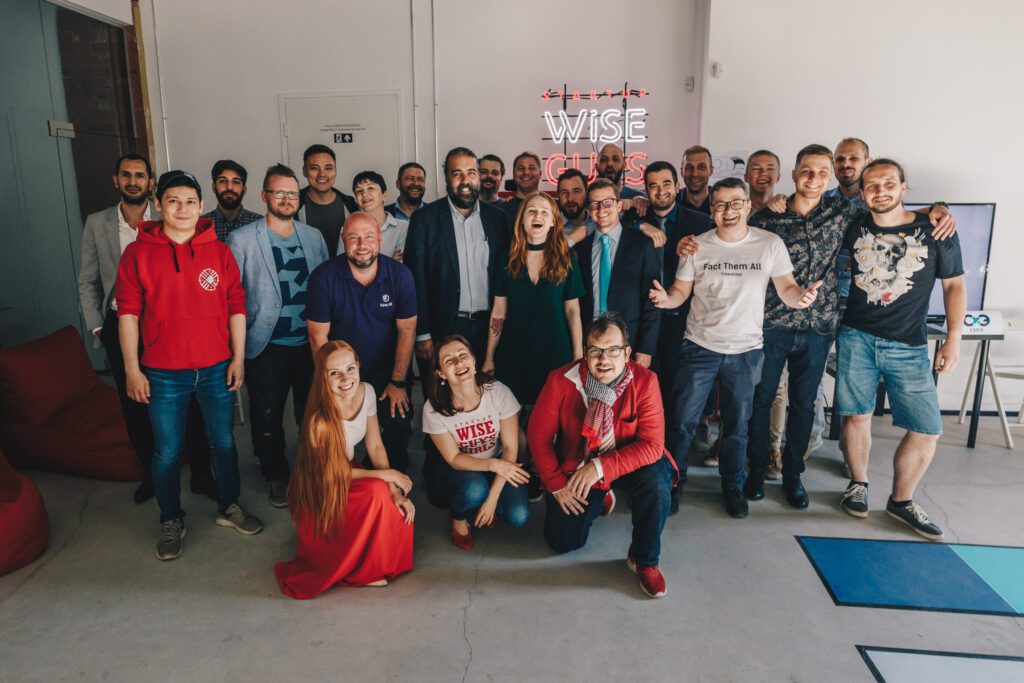Cybersecurity becoming more mainstream!
“Let me send you that invoice on messenger”, “Send me your phone number so I can send you the money”, “I have an app on my phone that let’s me invest in any asset in two clicks, want a referral?”
8 years ago, these conversations didn’t exist. Now they are as common as trying to discus the weather or the local entertainment scene. This shift to ‘Fintech’ and other -tech fields highlights two big trends:
Fintech, which till 8 years ago was limited to the confines of bank branches and financial districts, has become extremely mainstream. ATMs, internet and mobile phones have moved the interaction, money and risk out the confines of large well-guarded buildings and data centers. The way we think of this industry and its access has changed as well. A founder sitting in front of an investor 15 years ago would probably get laughed at if he even tried to get into this field, let alone talk about putting money into a phone. Now, it is mainstream, with regulatory support and a large customer behavior change.
Data and digital assets have moved from silos in big datacenters to everywhere. Everything is connected, everywhere. If you are a business, then everything from your facilities, heating, to your projector, printer and even fridge is connected to the internet. Data flows through these silos across entire nations. And this means there is a huge surface area of vulnerable data available.
I see these two trends, of data being everywhere and of traditional tech based industries becoming more startup and mainstream friendly, as major drivers in another vertical, cybersecurity, which has till now been accessible to only the very technical or very motivated.
The above trends lead to both a pain and an opportunity. The pain of analyzing, securing and de-risking a huge surface area of data, and an opportunity of making this frictionless, and mainstream, like fintech is now. No consumer or business knows about ports, firewalls or safe lists. As one of our mentors Kieren Lovell puts it, cybersecurity is now becoming just security. And he is true! If your money or data gets stolen electronically, while referred to cybercrime, is actually theft, and it is getting more widespread.
Opportunities for cybersecurity
The pain and opportunity are bigger than we expected as well. Unlike shifts in other industries which were either B2B or B2C, cybersecurity is a huge opportunity for both markets, due to the unprecedented flow of data, move to digital identity and lack of privacy. In fact, cybersecurity now includes elements of fintech, regtech, and proptech, which increases the opportunity for this vertical, to really embrace new solutions and technologies.
In 2013, researchers managed to hack a Google facility in Sydney. The hack did not happen via the core Google systems, but via the airconditioning/heating controller (HVAC) managed by a third party facilities manager of the office. While this was just an attempt to show the vulnerability, in 2014 Target suffered a huge data breach of nearly 70 million credit and debit cards, when hackers used the HVAC services providers details to gain access. This shows you can be as secure as you want, but your security is now dependent on how secure other organizations you interact with are. And this is why cyber sanitisation is extremely important.
Another question is what are the current incumbents doing? Well, it is fair to say that the building blocks of the services offered has not changed much. Most big security firms only target big enterprises, and only protect from threats once they start infecting hundreds of thousands of systems. The jigsaw remains the same, and they just cut it differently. This is similar to the way banking was 10 years ago. Now you have a specific product if you are a farmer in mid-state United States or if you are a Digital nomad. And this is exactly what we will see happen in the cybersecurity space. Products will become personalized, targeted and very, very easy to use.
Lack of proper support, coaching and mentoring in this space created the opportunity for CyberNorth. The cybersecurity, defense and AI fulltime 3-month onsite accelerator of mainland Europe, run with the cooperation of the Estonian Ministry of Defence and the Estonian Defence Industry Association, in Tallinn by accelerator veterans Startup Wise Guys. 8 startups from across the globe just finished the first program and after 50+ intensive workshops, 70+ “straight talking” mentors and 10 conferences are ready for new beginnings.

About the author:

Farid Singh has been a long term Geek in Residence and Entrepreneur in Residence for our startup batches, and this year he took the role of Managing Director of CyberNorth first program in Estonia, Tallinn. Farid has unique mix of biz dev and innovation stuff with deeply geeky and techy things (you can talk with him about satellites, 5G techologies, VR/AR practical usecases, Edge Computing and much more). INSEAD MBA degree and longer term experience in Telefonica and startups has some role in it. He’s truly passionate about bringing ideas to product, fostering innovation and making people succeed in whichever way he can. He does so by asking different questions, and challenging the status quo.


